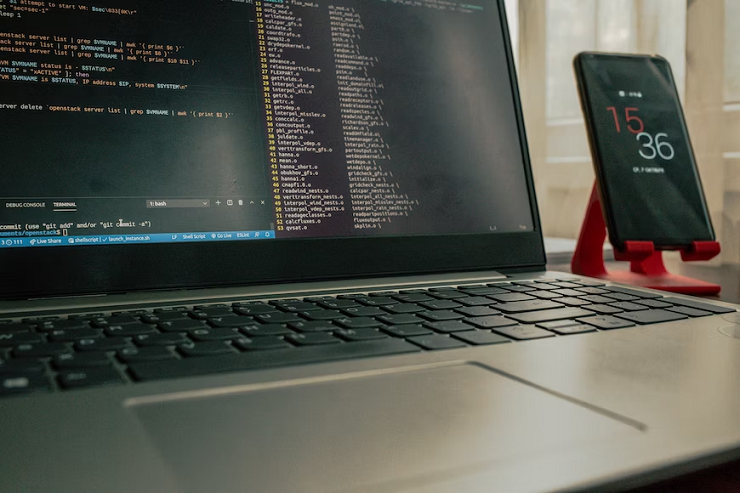
The interplay between technology and security has become more critical in today’s rapidly evolving digital landscape. As organizations continue to integrate advanced technological solutions into their operations, the threat landscape expands in tandem. The rise of cyberattacks has prompted a paradigm shift in how cybersecurity is approached, and at the forefront of this change is the pivotal role of AI in fortifying digital defenses.
The Shifting Landscape Of Cybersecurity
Cybersecurity has transformed from a static, perimeter-focused approach to a dynamic, data-centric one. The traditional methods of relying solely on firewalls and intrusion detection systems have proven inadequate against the sophisticated tactics employed by modern cybercriminals. The need for real-time threat detection and response has given rise to the prominence of artificial intelligence.
According to a report by Cybersecurity Ventures, global cybercrime damages are projected to cost businesses $10.5 trillion annually by 2025, highlighting the urgency for robust cybersecurity measures. Organizations recognize that an agile and intelligent defense system is crucial in thwarting cyber threats.
AI’s Crucial Role In Cybersecurity
Artificial Intelligence, driven by machine learning algorithms, has emerged as a game-changer in cybersecurity. The ability of AI to analyze vast amounts of data in real-time, identify patterns, and adapt to evolving threats makes it an invaluable asset for modern organizations.
1. Threat Detection And Prevention
AI-powered systems detect anomalies and patterns often invisible to traditional security tools. Machine learning models can learn the expected behavior of a system and flag any deviations as potential threats. This predictive approach allows for proactive measures, preventing cyber incidents before they escalate. According to a study by Capgemini, 61% of organizations implementing AI in their cybersecurity strategy reported decreased security breaches and incidents.
2. Automated Incident Response
In a cyberattack, time is of the essence. AI-driven automation accelerates incident response by instantly identifying the nature of the threat, containing its spread, and initiating countermeasures. This not only minimizes damage but also reduces the burden on human resources.
IBM’s 2021 Cost of a Data Breach report revealed that organizations using AI in their incident response reduced the average response time by 12%, resulting in significant cost savings.

A. Third-Party Risk Management
In the intricate web of modern business operations, the influence of third-party vendors and partners has grown significantly. While these collaborations bring efficiency and innovation, they also introduce a new layer of cybersecurity risk that organizations must address. As organizations expand their digital ecosystems, the role of AI in third-party risk management becomes a crucial aspect of modern cybersecurity strategy.
B. User And Entity Behavior Analytics (UEBA)
Identifying insider threats and malicious behavior from legitimate users can be daunting. AI-powered UEBA systems analyze user actions, access patterns, and interactions to detect unusual or unauthorized activity.
Gartner predicts that by 2025, 50% of organizations will use UEBA, up from just 5% in 2018.
C. Fraud Detection
Beyond external threats, AI plays a vital role in combatting fraud. Machine learning algorithms can scrutinize transaction data, identify discrepancies, and accurately recognize fraudulent patterns. This is particularly crucial for financial institutions and e-commerce platforms.
A report by Juniper Research estimates that AI-powered fraud detection will save businesses over $11 billion annually by 2025.
D. Continuous Monitoring
Traditional risk assessments are often limited to periodic evaluations. AI enables continuous monitoring of third-party vendors, allowing organizations to respond immediately to any changes in their security posture.
Looking Ahead: The Future Of AI In Cybersecurity
As AI advances, its role in cybersecurity is poised to become even more integral. Here are some future trends:
I. AI-driven Threat Hunting
AI will increasingly be used for proactive threat hunting, autonomously seeking out potential threats before they manifest. This approach ensures a more preemptive defense posture.

II. Explainable AI
Understanding how AI arrives at its decisions is crucial, especially in cybersecurity. Explainable AI aims to provide transparency, allowing cybersecurity professionals to comprehend the rationale behind AI-generated insights.
III. AI In IoT Security
The attack surface widens with the proliferation of Internet of Things (IoT) devices. AI will play a pivotal role in securing these devices by analyzing their behavior and identifying anomalies.
IV. Collaborative AI
The future holds the promise of collaborative AI, where AI systems from different organizations can share threat intelligence and collaborate in real-time to thwart complex cyberattacks.
Conclusion
In a digital landscape where threats are as sophisticated as the technology they target, embracing AI’s role in cybersecurity is not just an option—it’s a necessity. As organizations navigate the intricacies of safeguarding their digital assets, AI is a beacon of hope, providing the capabilities needed to stay one step ahead of cybercriminals. With the right approach, collaboration, and ongoing innovation, AI has the potential to reshape the cybersecurity landscape for the better. The statistics and trends make it clear: AI is not just an addition to cybersecurity but a fundamental evolution that will define the future of organizational security in the digital age.
Author:
Nagaraj Kuppuswamy is the Co-founder and CEO of Beaconer, an esteemed enterprise specializing in managed third-party risk using the cloud native AI based solution. With an extensive portfolio of accolades and industry certifications, Nagaraj stands out as a seasoned expert, boasting over 16 years of dedicated involvement in the field of Cybersecurity. Throughout the course of their career, he has predominantly focused on elevating the realm of third-party risk assessment.
